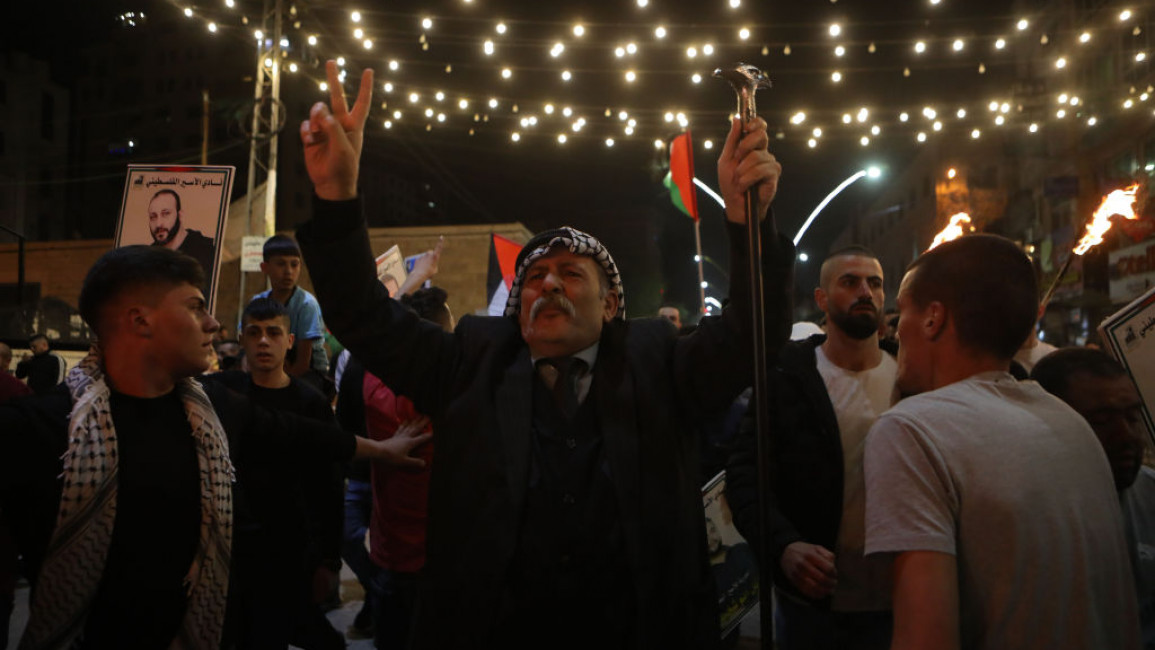Jordanians urge government to end ties with Israel over Al-Aqsa raids
Israeli raids on the Al-Aqsa Mosque in occupied East Jerusalem have sparked outrage among neighbouring Jordan's public and political sphere.
On Saturday, 76 members of Jordan's parliament signed a written request urging the government to close the Israeli embassy in Amman, sever diplomatic ties, and suspend bilateral agreements with Israel.
"I will not rest until I see this ambassador, who represents the entity that usurps our land, kills and displaces our people and desecrates our sanctities leave Jordan," MP Khalil Attieh, who signed the memorandum, told Jordan News.
The following day, King Abdullah urged Israel to "cease illegal provocative measures" and called for greater international pressure on the Israeli authorities.
In a phone call with his Emirati counterpart Sheikh Mohamed bin Zayed Al Nahyan on Monday, the Jordanian ruler further urged for an end to "dangerous Israeli escalations in Jerusalem."
His Majesty King Abdullah II, in a phone call with Sheikh Mohamed bin Zayed Al Nahyan, the crown prince of Abu Dhabi and the deputy supreme commander of the UAE Armed Forces, urges continued efforts to end dangerous Israeli escalations in #Jerusalem #Jordan
— RHC (@RHCJO) April 18, 2022
Jordanians on social media used the Arabic hashtag "normalisation is betrayal" to call on the government - which has recently signed energy cooperation deals with Tel Aviv - to cut ties with Israel.
Al-Aqsa Mosque, known to Jews as the Temple Mount complex, is the third holiest site in Islam. Jews are traditionally allowed to visit but not to worship inside the complex.
Jordan is the custodian of several holy sites in Jerusalem, including Al-Aqsa Mosque, but it has little power to control entry into the site.
Israel, which has occupied East Jerusalem and the West Bank militarily since 1967, is de facto in control of security at the complex.
Palestinians are routinely banned from entering Al-Aqsa Mosque, while far-right Israeli activists and settlers are allowed to march and attack Palestinians, often without consequences.
Jewish settlers have violently stormed the mosque several times in the past year, under the protection of Israeli police and in violation of the historic status quo.
Tensions ran exceptionally high over the weekend following calls by extremist Jewish groups to worship inside the complex during Passover, and Israel's decision to station police inside to "protect" Jewish worshippers.
On Friday, more than 150 Palestinian worshippers were injured and some 400 people were arrested in an Israeli raid on the complex.
The move, which took place in the middle of the Muslim holy month of Ramadan in clear violation of informal historic agreements, has angered many Palestinians, who have taken to the streets in Jerusalem, the occupied West Bank and the besieged Gaza Strip in protest.
Jordan hosts the highest concentration of Palestinian refugees worldwide, and more than half of the population is of Palestinian origin.


![President Pezeshkian has denounced Israel's attacks on Lebanon [Getty]](/sites/default/files/styles/image_684x385/public/2173482924.jpeg?h=a5f2f23a&itok=q3evVtko)



 Follow the Middle East's top stories in English at The New Arab on Google News
Follow the Middle East's top stories in English at The New Arab on Google News


